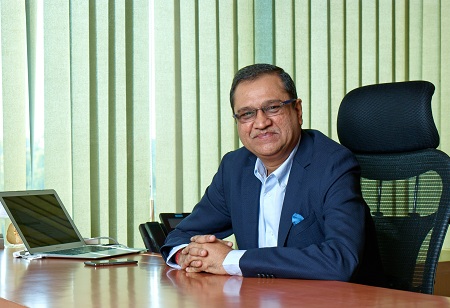In an interaction with Industry Outlook, Arvind Nopany, Managing Director, Rishi FIBC Solutions Pvt Ltd. shares his views on the evolution of bulk packaging, the challenges involved in manufacturing, and ways to address them.
Bulk packaging is increasingly becoming popular in several industries such as food, chemical, pharmaceutical, construction, mining, and others. How do you see the current evolution of bulk packaging market in India? What are the major factors driving its growth?
The
bulk packaging market is slowly but steadily growing in India. The flexible bulk packaging is the fastest growing sector of India’s
packaging industry. India is one of the largest manufactures and exporter of bulk packaging (FIBC’S).
Domestically the utilization of bulk packaging (FIBC’S) is less compared to European and American markets but there is huge growth opportunity in India. Some of the factors which drives this growth are:
• With increasing exports from India particularly in food processing, pharma and chemical, requires customized bulk packaging solutions for Indian manufacturer.
• Increasing supportive infrastructure for transportation as well as storage in India.
• Government policies encourage to use recyclable material for packaging in India which FIBC’s comply.
• Increased requirement of customized storage and transportation for various Industries.
• Shortage of skilled labor in India resulting in increased uses of FIBC’s as it is easy in handling and cost effective.
As companies are having cost pressure on all fronts, moving to bulk packaging is one of the ways to bring down the cost. Due to mechanized handling of bulk sacks, overall handling cost also comedown and that is one of the factors driving its growth.
What are the major concerns of industries with regards to bulk packaging? What are their expectations from FIBC bag manufacturers? How can those challenges be addressed, and the expectations be fulfilled?
Mostly in India, the users do not have knowledge of proper utilization of FIBC’s. The users want reliable, customized, and cost-effective bulk packaging solutions from FIBC manufactures along with knowledge transfer like – how to use it for packaging the product (Handling of Bag on site), how to handle while storing the product and at transportation etc.
To address those, challenge the FIBC manufacturers should provide product along with customized solution package to the users.
Quality and timely delivery remain major concern for food and pharma industry and cost is a major concerned for industries which pack low value produce like construction and mining.
Clients expect a clean bag with no contamination. We have a well-defined production process which is monitored. The above criteria is well addressed by us as we have highly qualified professionals and have skilled work force who follow the SOP laid down for each activity so that the customer gets the right bag on time.
Reduction of overall weight of bulk packaging is one of the key factors driving the demand for flexible intermediate bulk containers. How does the reduced weight advantage stacks up against the protection of the material, especially when compared to metal containers?
FIBCs are made of flexible woven typically polypropylene (PP) and have a capacity to hold 500 kg to 2,000 kg of weight. Flexible intermediate bulk containers lower the total weight of bulk packaging owing to their negligible weight compared to metal containers.
